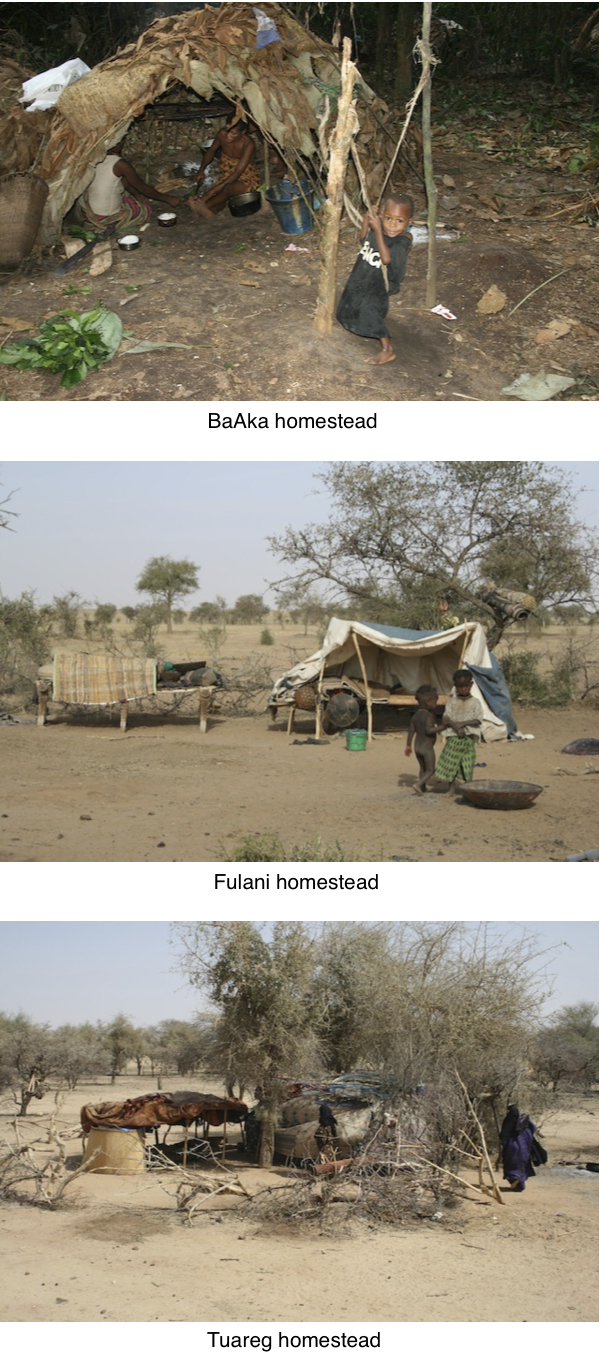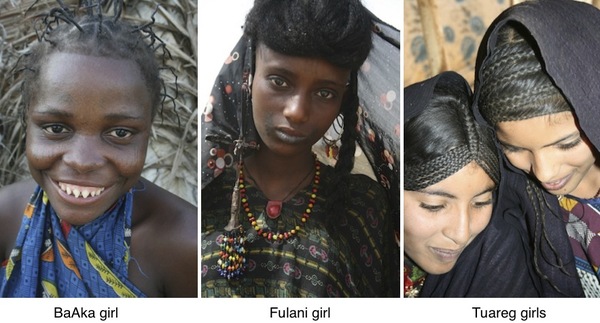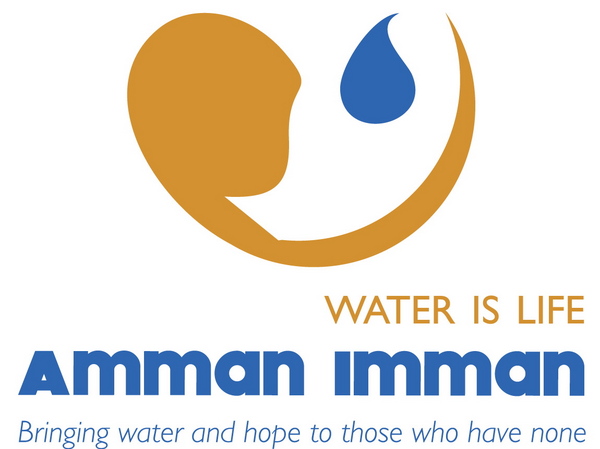Please contribute towards our $35,000 goal to provide better access to food, water and revenue among the Tuareg and Fuani populations of the Azawak.  |
Denis and I traveled to the Central African Republic for two months this past spring to undertake a needs analysis among the indigenous people (the BaAka pygmies) in the country’s far southwestern corner. As we prepare to return to Africa within the upcoming month, we have been thinking back on our amazing (and also challenging) experience in the Central African Republic. I think that in all my travels and experiences, I've never lived among such an intriguing and different kind of people as the BaAka pygmies. The pygmies are complete masters of their universe -- the equatorial rain forest. They can spot a bit of dirt on the ground, and know that 20 meters high in the tree next to them, they'll find a beehive. They know that, next to a certain flower that grows in a tree, they'll be sure to find a pangolin (like an armadillo) for dinner. They fish in streams with their hands, and still hunt with nets, bows and arrows, and slingshots. They know the medicinal attributes of each plant and tree, and know where to find pure water in lianas that grow throughout the forest. They know which caterpillars are poisonous, and which grubs are a treat to eat with a tree nut sauce. And then, as soon as you remove them from their forest setting, they feel out of place among other Africans in the villages. There, they are exploited, and often treated as sub-human. Their rights and dignity are abused, and eventually they often turn toward drugs and alcohol, which leads to even more severe exploitation. In the village, they become a sad example of human rights neglect and tragedy.
Our experience in the Central African Republic emphasized how crucial our work is in Niger. Our short time among the pygmies made it even more apparent to us that our development work in Niger is about much more than saving lives by bringing water to 500,000 people dying of thirst -- and more now with the refugees from Libya that have settled in the region. It's also about fighting for human rights and preserving ancient cultures that are slowly disappearing... it's about preserving our world heritage. The pygmies, as one of the very last true hunter-gatherers are a world treasure, and an example of how our own first ancestors used to live. The Tuaregs and the Fulani of Niger -- the populations of the Azawak -- are similarly an ancient nomadic people with dying traditions, all suffering from disempowerment and lack of access to the most basic human rights and resources. These indigenous minorities face direct threats from others who directly or indirectly exploit, abuse, and endanger both their lives and livelihood.
Please join Denis and me as we travel to Niger in November to provide better access to food, water, and revenue among the Tuareg and Fulani populations of the Azawak. We have launched our fall campaign to raise $35,000 to fund our desperately needed work, and we ask you to be a part of it by making your contribution today. To donate, click here.
Sincerely yours, for dignity, life and hope among the Tuareg and Fulani of the Azawak,
Ariane
p.s. A new movie, OKA!, filmed in the CAR rainforest with the BaAka, opens in several cities in the USA this week. To learn, and to attend one of the openings, visit http://www.okamovie.com/









